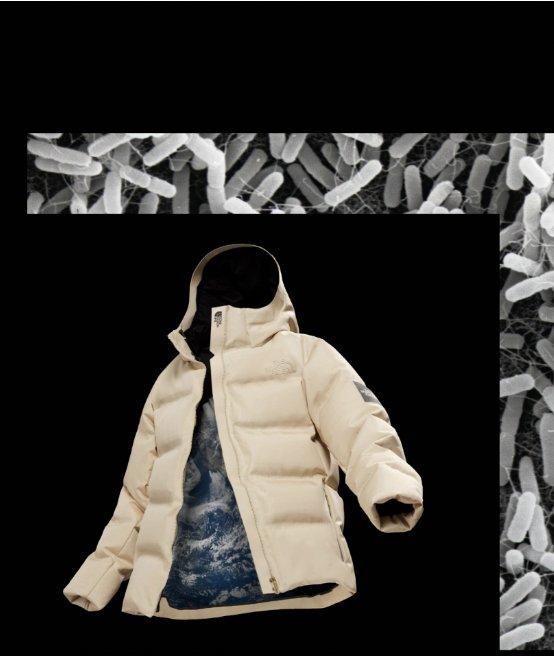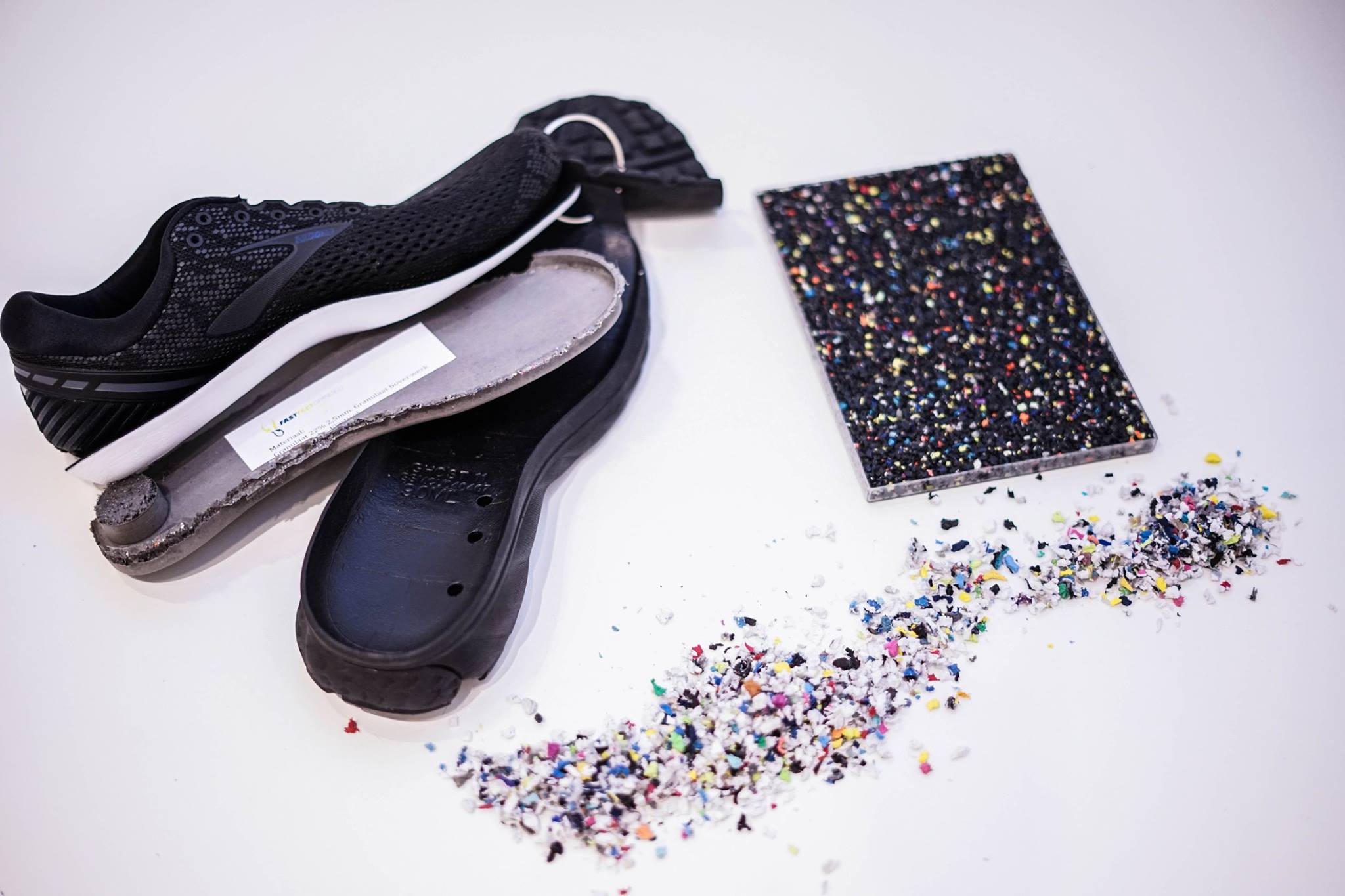
The Next Stride: Bio-based Materials for Footwear Soles
“The Next Stride: Bio-based Materials for Footwear Soles” aims to validate the performance and environmental impact of bio-based polymers as sustainable alternatives to the fossil fuel-derived materials currently used in footwear soles. The objective is to collectively de-risk the transition to these “next-generation” materials by rigorously testing their technical properties and assessing environmental benefits. Ultimately, the purpose is to accelerate the adoption of these bio-based solutions and pave the way for a more sustainable footwear industry.
Problem Statement
The global footwear industry, a $400 billion market in 2023 projected to reach over $550 billion by 2030, while offering considerable economic opportunities, simultaneously underscores the escalating environmental impact associated with footwear production, consumption, and disposal. The core problem this project addresses is the industry’s heavy dependence on fossil fuel-derived polymers like PU, TPU, EVA, and Rubber for footwear soles, which has dire consequences for the planet. The carbon footprint of a typical pair of synthetic running shoes is estimated at 14 kg of CO2 equivalent, with an overwhelming 97% of this impact directly attributable to the raw material processing (29%) and manufacturing (68%) stages. This highlights that the choice and production of materials are critical factors in the footwear industry’s environmental footprint.
Executive Summary
The Next Stride: Bio-based Materials for Footwear Soles is a 12-month project led by Fashion for Good, with participation from brands adidas, Target, and Zalando. The initiative aims to address the footwear industry’s heavy reliance on fossil-fuel-based polymers by validating bio-based material alternatives. The project’s core objectives are to benchmark the performance of these new materials against conventional options, conduct comprehensive life cycle assessments to understand their environmental impact, and explore cost optimisation to overcome the price premium that currently hinders widespread adoption.
This initiative represents a critical first step in determining whether bio-based, potentially biodegradable materials offer a genuinely viable alternative to both traditional fossil-fuel materials and current recyclability-focused approaches. The findings from this work can then be used to inform the development of a roadmap for larger-scale adoption, incorporating considerations such as impact accounting, feedstock availability, end-of-use solutions, and the infrastructure needed to support broader implementation.
Goals of the Project
-
To develop an understanding of the environmental impact of bio-based materials through comprehensive Life Cycle Assessments (LCAs), and to clarify how biogenic carbon is treated under various established methodologies and standards.
-
To assess and benchmark bio-based polymers and polymer blends against conventional fossil-fuel-derived EVA, PU, TPU, rubber, and TPR. This will validate their potential as a material for footwear soles, with a focus on performance and impact characteristics.
-
To explore cost optimisation opportunities for mitigating the existing price premium associated with bio-based footwear materials, which limits brand adoption and delays the market signals needed to justify large-scale investments.
Innovators
Innovation Partners
Relevant Resources

What are biomaterials in fashion?

Understanding Bio-Material Innovations: A Primer for the Fashion Industry
The fashion industry is undergoing a materials revolution, with bio-based innovations at the forefront of sustainability efforts. This report, developed by Biofabricate and Fashion for Good, provides a foundational understanding of bio-material innovations, their definitions, processes, and potential for large-scale adoption. With contributions from leading innovators, brands, and manufacturers, this primer aims to drive informed decision-making and enhance cross-sector collaboration.

Fashion for Good launches the Feedstock Assessment for Biosynthetic Innovation

Closing the Footwear Loop
The “Closing the Footwear Loop” project is a major initiative led by Fashion for Good, bringing together 17 leading fashion and footwear brands and their existing circularity programs to tackle the complex challenges of circularity in the footwear industry. The project aims to transform the current linear “take-make-dispose” model into a circular one.

Fast Feet Grinded Collaborative Pilot
The aim of the pilot was to test and validate the FastFeetGrinded footwear recycling process by evaluating the quality of outputs and understanding the environmental impacts of the process. FastFeetGrinded is a company specialising in footwear recycling that accepts all types of footwear as feedstock to produce sorted material granulates with zero waste streams. FastFeetGrinded aims to deconstruct any type of pre- and post-consumer shoe, separating footwear into substituent components, which are then subsequently grinded down and processed to create material streams for repurposed use.
Other Projects

Beyond50 Denim: Combining Cottonised Hemp And Green Chemistry
“Beyond50 Denim: Combining Cottonised Hemp And Green Chemistry” aims to validate the performance and environmental impact of cottonised hemp processed with green chemistry to act as a true alternative to cotton in denim applications. The project goal is to evaluate the performance of SEFF’s cottonised hemp fibre in combination with Fibre52’s bio-friendly chemistry solution within denim fabric applications with a total hemp content of 50% and above. The fabrics will be benchmarked against conventional 100% cotton denim with a specific focus on handfeel and aesthetic characteristics.

Price Parity Toolkit
The Price Parity Toolkit (PPT) was designed to help bridge the price gap between next-gen* and conventional materials. Developed by Fashion for Good with the support of Canopy, this industry-supported framework introduces a financing mechanism that decouples price premiums at early stages of the supply chain to enable adoption and drive the scale of lower-impact materials.

Fiber Club
Fashion for Good’s Fiber Club unites brands and innovators to fast-track the use of sustainable materials in the fashion sector. These partnerships offer brands early access to cutting-edge fibres, ensuring beneficial supply agreements and easier incorporation into their supply chains. Fiber Club aims to not only shift the cost structure but to help align brands in a very fragmented and competitive industry.







